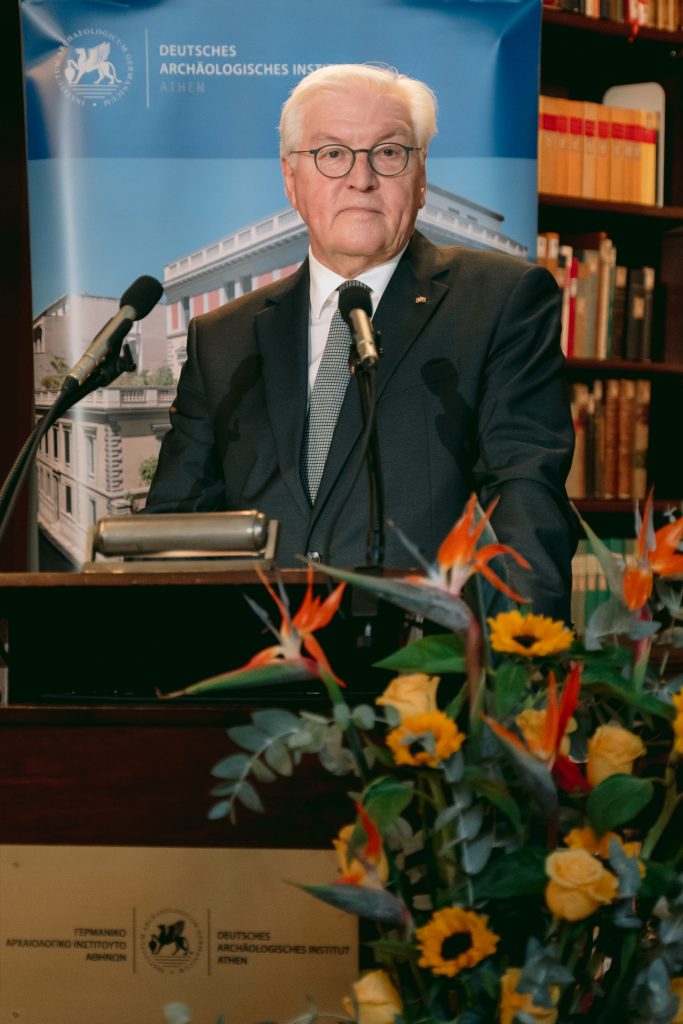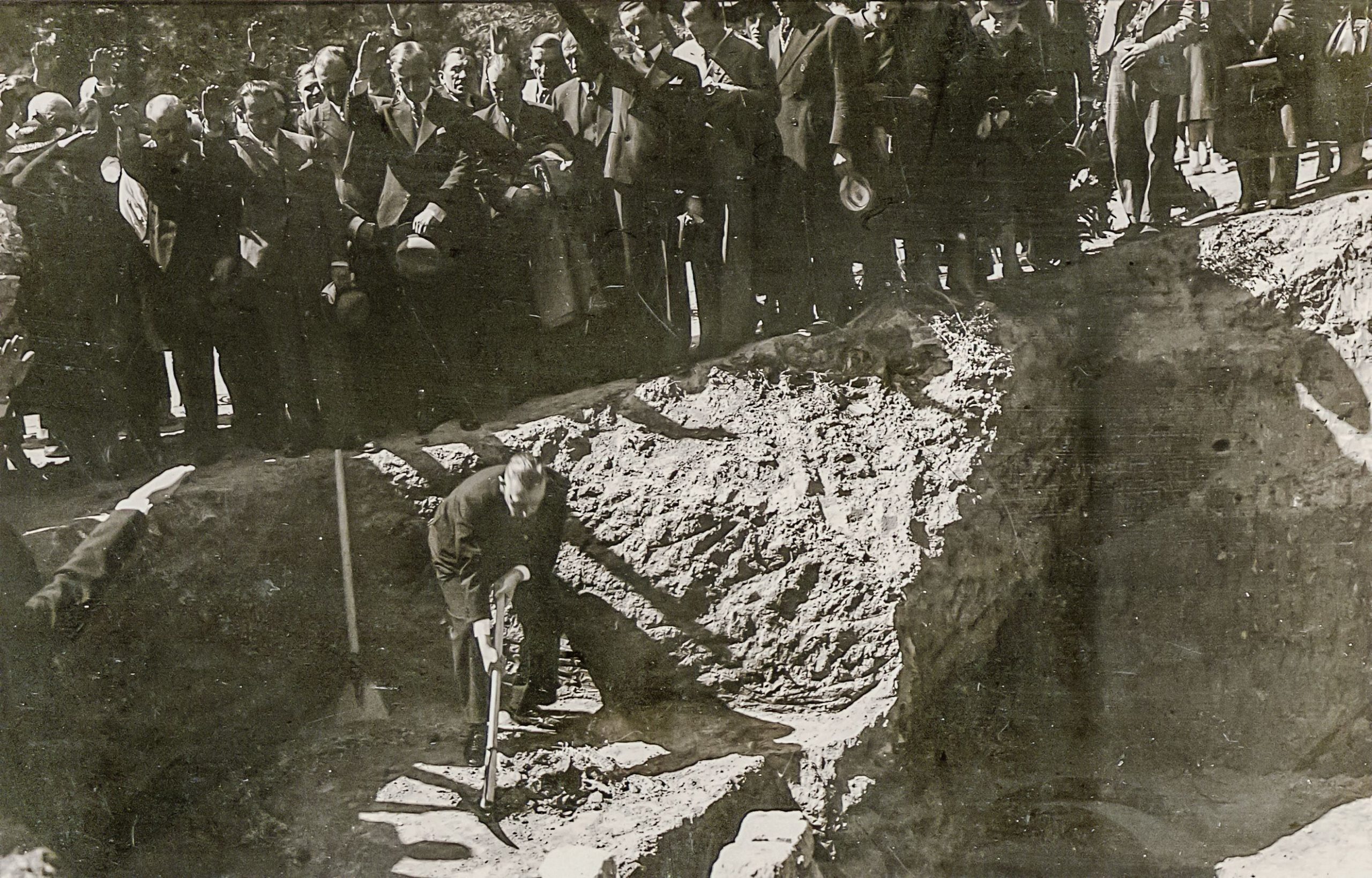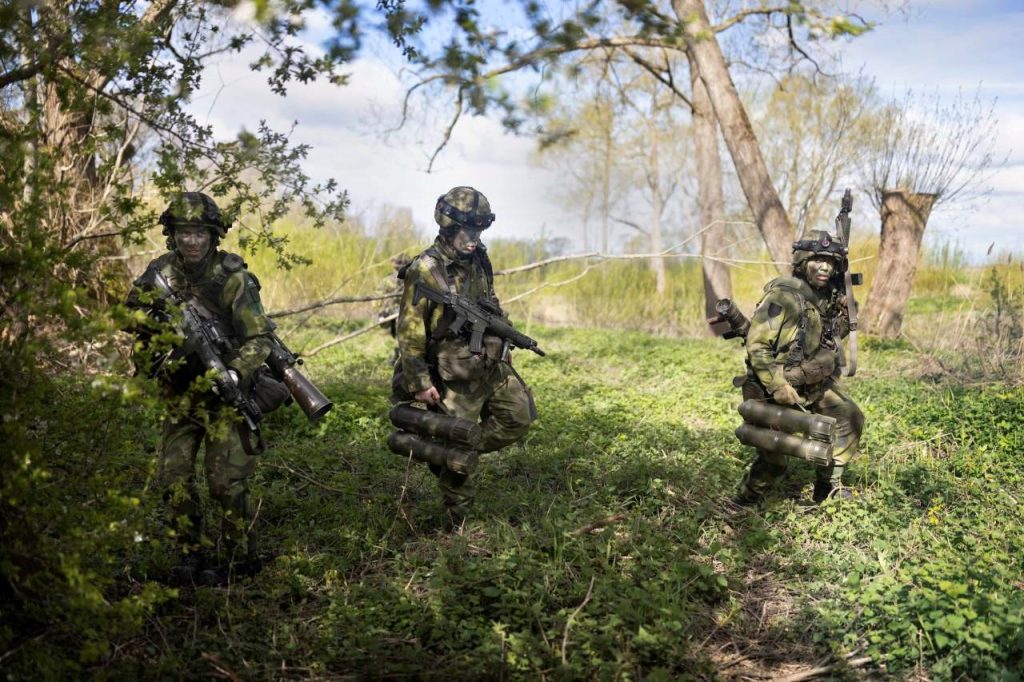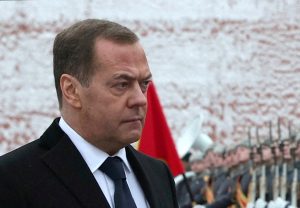German President Frank-Walter Steinmeier’s visit to Greece, on the heels of the Oct. 28 “OXI Day” national holiday to commemorate the country’s entry into WWII, raised eyebrows, particularly as many Greeks are still angered over the atrocities it committed during WWII and its refusal to pay reparations for these crimes, says a report at Friedrich-Ebert-Stiftung.

President of Germany Frank-Walter Steinmeier gives a speech during his visit in Athens.
Steinmeier’s visit was designed to further improve German-Greek relations, as well as the gradually warming Greek public view of Germany, by focusing on areas of “cooperation in business, science and culture,” according to an announcement by Berlin.
However, the ‘Digging it Diplomatically’ event at the German Archaeological Institute in Athens (DAI Athens), which was attended by Steinmeier, hints that it is high time for Germany to decouple its archaeological initiatives from state politics.
The 150-Year Legacy of DAI Athens
2024 marks the 150th anniversary of the DAI Athens, which has left a remarkable legacy for archaeology and excavations in Greece that spans over 160 digs, including at world-renowned sites such as ancient Olympia and Tiryns, uncovering periods from the Paleolithic to the Middle Ages.
In his speech at the event, the German President highlighted this legacy, lauding the institute for its excavations and the prominent scholars it has hosted, such as German archaeologist and architect Wilhelm Dörpfeld, a pivotal figure in Greek excavations, who set a new standard in archaeology globally.
Dörpfeld introduced stratigraphic excavation—a meticulous, layer-by-layer method that not only enhanced site analysis but also protected excavation sites from reckless practices that often caused permanent damage.
Today, some of DAI Athens’ more recent digs focus on integrating the use of cutting-edge technologies with traditional means to examine how the ancient Greeks adapted to the impact of climate change.
Moreover, the institute is digitizing its vast archives of data and aims to offer the latter online through a free access portal.
The Challenges of ‘Digging it Diplomatically’
DAI Athens is unique among the 19 archaeological institutes in Athens, as it is one of the few operating under the direct control of its country’s foreign ministry. By contrast, most other institutes maintain a degree of independence from their home governments.
In fact, all of Germany’s archaeological institutes worldwide, collectively known as DAI, operate within the German Federal Foreign Office. In following, the German Foreign Office invests around 40 million euros annually in DAI’s budget, establishing a direct link between German foreign policy and archaeological work worldwide.
This makes DAI an indisputable tool of Germany’s “soft power” strategy—which, according to international relations theorist Joseph Nye, is how countries achieve their goals through co-optive influence rather than hard power and commands.
On one hand, this approach keeps DAI financially secure, demonstrates Germany’s commitment to archaeology and facilitates its operation in various regions of the world. On the other, it has historically led to controversial intrusions into DAI Athens’ scientific work—intrusions that DAI Athens does not attempt to conceal in the 150-year anniversary exhibit, as it courageously strives to confront darker parts of its past to pave a clearer path ahead.
Nazi Control of DAI Athens
Notably, in the 1930s and early 1940s, DAI Athens increasingly became a tool for Nazi Germany to promote its image by associating itself with the cultural legacy of ancient Greece.
After Hitler’s rise to power in 1933, DAI Athens’ executives became involved with Nazism and in 1937 a high-ranking Nazi, Walther Wrede, was appointed to the position of director.
Photographs from that period, which are on display at the institute, reveal that DAI Athens became a gathering place for Nazi supporters in Greece, even hosting Hitler’s propaganda minister, Joseph Goebbels, during his visit to the country before the war.
The Nazi influence extended beyond Athens to excavation sites like ancient Olympia, one of Greece’s most revered locations, which Hitler hoped to showcase during the 1936 Berlin Olympics.
As WWII began in September 1939, DAI Athens’ links to the German state and Nazi party led the Greek government to halt DAI Athens’ excavations in 1940, which later continued sporadically until German forces evacuated mainland Greece in the autumn of 1944.
DAI Athens returned to partial German control in 1951 and, although it gradually resumed archaeological activities, its pause in operations and prior political affiliation with Nazi Germany allowed the American School of Classical Studies at Athens (ASCSA), founded in 1881, to gain a competitive edge over DAI Athens and other institutes in Greece.
Time to Decouple?
While most archaeological institutes in Athens can be seen as part of their countries’ soft power efforts through “cultural diplomacy,” perhaps it’s time for Germany to reconsider its approach and decouple archaeological science from state policy- at least in Greece.
Such a move could empower DAI Athens by placing scientific integrity at the forefront of its mission, distancing it from past political entanglements. By separating science from politics, DAI could more effectively “create a foundation of trust”—a core aim of cultural diplomacy—and enhance the credibility of its work.
One possible model is the American School of Classical Studies at Athens (ASCSA), which maintains financial and legal distance from the U.S. government. Financially, ASCSA relies primarily on private donors and is backed by a consortium of nearly 200 North American colleges and universities. As a private nonprofit with 501(c)(3) status, it operates independently from the U.S. government’s direct influence.
There are, of course, visits from US ambassadors to the ASCSA, and the soft power benefits of impressive archaeological discoveries being unearthed and studied by Americans, but the institution is able to operate independent of state decisions tying the purse strings.
Such a shift would help DAI Athens fully realize its potential as a respected entity of archaeology within Greek society, and would signal Germany’s commitment to moving beyond darker chapters of its history, at least in Greece.



